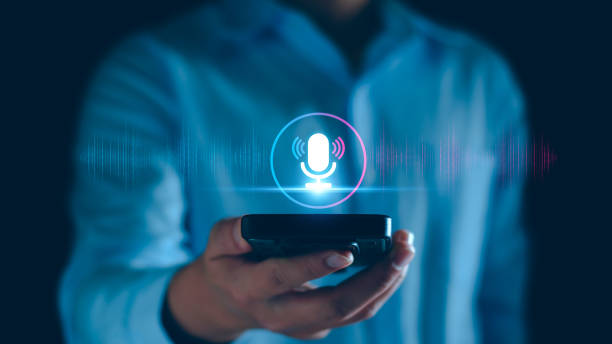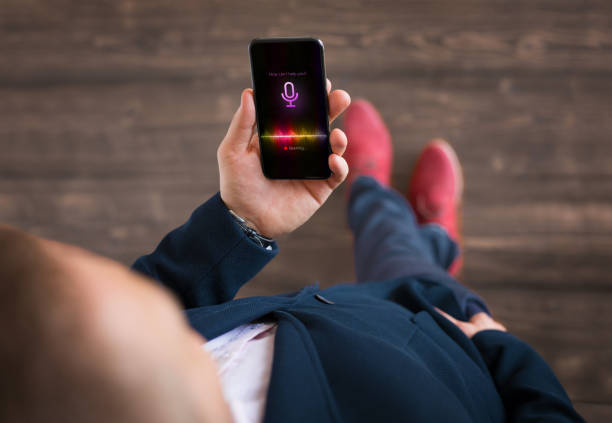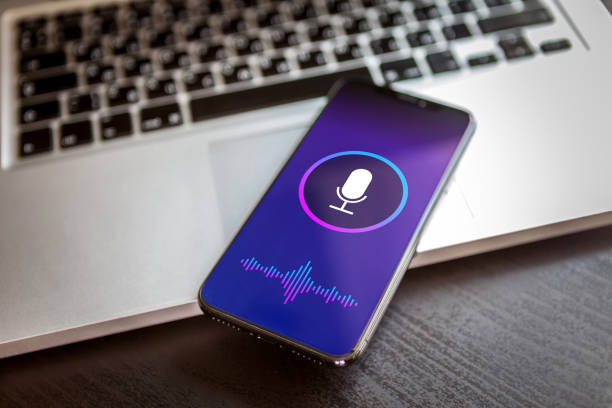In today’s fast-paced digital landscape, where convenience is king, voice assistants on Smartphones have emerged as game-changers in how we interact with our devices. Imagine this: you’re driving to work, and instead of fumbling with your phone to change the music or check the weather, you simply say, “Hey Google, play my morning playlist” or “Siri, what’s the forecast for today?”
This seamless interaction is made possible by voice assistants on smartphones, which are transforming our everyday tasks into effortless experiences. Let’s explore how these virtual companions are reshaping our interactions with technology and enhancing our lives.

Table of Contents
The Rise of Voice Assistants
Voice assistants on smartphones like Siri, Google Assistant, and Alexa have become ubiquitous in our lives. According to a Pew Research survey, nearly half of U.S. adults (46%) now use these applications to interact with their smartphones and other devices. This surge in popularity reflects a growing trend of users seeking more intuitive ways to engage with technology.
Imagine walking into your home after a long day and simply saying, “Alexa, turn on the living room lights.” The convenience of voice commands allows us to control our environments without lifting a finger. This hands-free functionality is particularly appealing in situations where manual interaction is inconvenient or impossible—like when you’re cooking or driving.
How Do Voice Assistants Work?

At their core, voice assistants rely on sophisticated technologies that combine automatic speech recognition (ASR) and natural language processing (NLP). When you speak to your device, the ASR system captures your voice and translates it into text. Then, NLP interprets that text to understand your intent and execute the desired task.
For instance, when you ask Google Assistant for directions to a restaurant, it recognizes your request, processes it using its vast database of information, and provides you with accurate navigation instructions. The more you interact with these assistants, the smarter they become — learning your preferences and improving their responses over time.
Transforming Everyday Tasks
Voice assistants on smartphones are not just about convenience; they are revolutionizing how we perform various everyday tasks:
Hands-Free Control
One of the most significant advantages of voice assistants on smartphones is their ability to enable hands-free control. Whether you’re driving, cooking, or exercising, you can access information or control smart devices without interrupting your flow.
Imagine being in the kitchen with your hands covered in flour while trying to follow a recipe. Instead of touching your phone with messy hands, you can simply say, “Hey Google, read me the next step.” This functionality makes multitasking easier than ever.
Smart Home Integration

Voice assistants on smartphones especially, have become central hubs for controlling smart home devices. From adjusting thermostats to locking doors and turning on lights, voice commands allow for seamless integration across various systems.
Picture this: you arrive home late at night and say, “Siri, turn on the porch light.” Instantly, your home responds to your command without any effort on your part—enhancing both convenience and security.
Enhanced Accessibility
For individuals with disabilities or those who struggle with traditional input methods, voice assistants on smartphones provide an essential tool for accessing technology. By enabling users to interact with their devices through speech alone, these assistants enhance accessibility and independence.
Consider someone with visual impairments who can use voice commands to send texts or make calls without needing to see their screen—this capability opens up new possibilities for communication and connectivity.
The Future of Voice Assistants

Increased Personalization
Future iterations of voice assistants on smartphones and on other devices are expected to become even more personalized. By analyzing user behavior and preferences over time, they will be able to anticipate needs and provide tailored suggestions — like reminding you of appointments based on your calendar or suggesting recipes based on past cooking habits.
Proactive Assistance
Rather than waiting for users to issue commands, future voice assistants may take a more proactive approach by offering helpful suggestions based on context. For example, if it detects that you’re running late for a meeting based on traffic conditions, it might prompt you with alternative routes or suggest rescheduling options.
Multimodal Interaction
The future may also see advancements in multimodal interaction—combining voice commands with gestures or visual cues for a more intuitive experience. Imagine being able to point at a device while giving a command; the assistant could recognize both inputs for an even smoother interaction.
Conclusion
Voice assistants on smartphones are undeniably changing how we interact with technology—making our lives easier and more efficient in countless ways. From hands-free control and smart home integration to enhanced accessibility features, these virtual companions are becoming integral parts of our daily routines.
As we embrace this technology-driven future, it’s clear that voice assistants will continue to evolve and adapt to our needs. So why not take full advantage of these remarkable tools? Start exploring what voice assistants on smartphones can do today — whether it’s setting reminders, controlling smart devices, or simply answering questions—and experience firsthand how they can transform your interactions with technology!